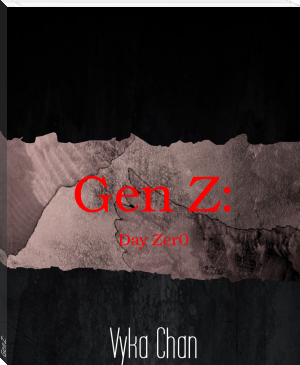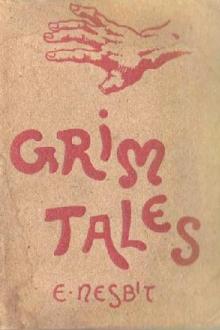Callisto 2.0 - Susan English (sad books to read .txt) 📗

- Author: Susan English
- Performer: -
Book online «Callisto 2.0 - Susan English (sad books to read .txt) 📗». Author Susan English
both on Earth and on the Moon. Apart from a few solar panels, virtually all the Moon’s power was produced by fusion using the helium-3 extracted from the lunar surface—a rare isotope on Earth but found in abundance on the Moon. The energy production of the fusion reactors was extraordinary. The Moon’s biggest export product was, naturally, helium-3.
There was plenty of water on the Moon at the poles, in the form of ice, and with the help of bots, it was a relatively simple task to transport whatever water was needed.
Carbon and nitrogen, along with a few other trace elements needed for plant growth, were scarce, but years and years of importation solved that issue, and since the lunar colonies were all closed systems, these elements, like oxygen and water, were continually recycled.
We took the train to the Sector Sixteen stop. There were two doors, a large bay door, for shipments, most likely, and a pedestrian entrance. Diana palmed the security pad, which opened the smaller door, and we stepped into an airlock. Even though the metro tunnels were fully pressurized, each sector had its own airlock, for safety. The exterior door closed with a whoosh, then the interior pedestrian door opened into a vast, open area.
Although the Moon had plenty of room, it was expensive to build and maintain living and research spaces, and, as far as I knew from my limited experience, most of the sectors were overcrowded and overflowing, with narrow corridors and tiny rooms. But this was something else entirely, and my first thought was: this Foundation has money!
There was an amphitheater with a small stage and turfed terraces, which looked like it could seat around a hundred people. At the far corner, I could see a fountain, and the walls were covered with a variety of plants and flowers. The entire area was lit with soothing white light. Mouth agape, I stood, taking it all in.
“Isn’t it lovely?” asked Naomi, grinning.
“That’s an understatement. It’s like the hanging gardens of Babylon.”
“Only better, because this really exists,” said Diana.
“Now, Diana,” Naomi said, shaking her index finger in mock sternness, “just because they never found the gardens doesn’t mean they didn’t exist. Absence of evidence is not evidence of absence, after all.”
Diana laughed heartily. “Point taken.” She set her suitcase down near the door. “You can leave your backpack here, Calli.”
I shrugged off my pack and placed it next to Diana’s suitcase, then took a deep breath of the clean, fresh air. “I’ll bet this is the best air on the Moon.”
“That’s thanks to all this marvelous foliage,” said Diana. “We have a sophisticated air-filtration system, but it’s the plant life that gives the air its sweetness.” Diana observed the walls of greenery, her look thoughtful. “We call this space ‘Delphi Park.’
I don’t know who came up with the name. Do you, Naomi?”
“I don’t have a clue, but perhaps it’s got to do with the ancient theater at Delphi.”
“Mm-hm, you’re probably right.” Diana turned to me. “Here is where our scientists 22
and technicians can come to contemplate,” she said, indicating several benches scattered along the walls with a sweep of her arm. “And the amphitheater is where we hold staff-wide meetings. There’s enough room for everyone, the people living here at Arcadia and on Shambhala. Sometimes we also have music or plays.” Diana paused, then added, “I feel like people are more productive when they are surrounded by nature.”
“I can imagine.” I thought of my cubicle at the university and my shabby apartment back in Los Angeles, a week-to-week lease in a rough neighborhood, where I had moved after finishing my postdoc. It was all I could afford on California’s guaranteed minimum income.
Naomi and I followed Diana to an entryway opposite the airlock, which opened into a corridor. Doors lined both sides of the hallway, and as we walked, Diana explained that they led to living quarters. We stopped at a set of big double doors, and Diana opened one of them, motioning for me to take a look. It was a large room full of tables and chairs, as well as computer terminals. Several people were working at the terminals, and a few were sitting at a long table, watching as a woman wrote an equation on a whiteboard.
The next doorway opened to the dining room, and, after another quick peek, I followed Diana and Naomi to the farm. If the entrance to Arcadia was impressive, with its amphitheater and walls of vegetation, the farm was nothing short of spectacular—
vertical gardening at its best.
“We have two full-time gardeners on staff,” Diana said.
Just then a slim woman dressed in stained overalls approached us, her dark hair pulled back in a ponytail. “Diana! I didn’t know you were on the Moon, I thought you were back on Earth,” she said, giving Diana a hug and then turning to hug Naomi.
“We arrived this morning.” Diana rested her hand lightly on my shoulder. “Berit, this is Calli.”
“The prospective new physicist, welcome.”
“This is a whole production,” I said to Berit.
“Isn’t it? I love it here.”
Berit had a heart-shaped face, dark, upturned eyes, and skin the color of desert sand.
I guessed she was Egyptian. It fit her physiognomy.
“I recognize most of the plants, but there are some hybrids that I can’t identify,” I said.
“We’ve developed some new varieties, suited especially for lunar gravity,” said Berit.
“Berit and the other gardener, Yasmin, are botanists,” Diana said.
“And beekeepers and chicken farmers,” Berit added, laughing.
“Chickens, too?” I raised an eyebrow.
“Come on, I’ll show you. But we’ll take the long way, let you get a feel for the terrain.”
We followed Berit, winding our way along a gravel path. Spotting a woman tending beehives, I stopped. She was in the middle of a swarm, cleaning a hive. I could hear the 23
hum of the bees, the sound intense and oddly comforting.
“We’ll say hi to Yasmin later,” Berit said.
I looked again at Yasmin and let out a gasp. “She’s not wearing any kind of protection! Not even gloves.”
“Oh, she’s a proper bee whisperer,” said Berit. “Although the bees here are super chill.”
We continued along the path for about ten meters, turned a corner, and I stopped short. “There’s a lake here?”
“It’s really a pond,” said Berit, shrugging, but the corners of her mouth twitched, and she stood a little straighter. “Part of the farm is dedicated to aquaponics. We have a whole school of tilapia.”
“I had no idea there were fish on the Moon,” I said.
“This is the only colony with fish, if I’m not mistaken,” said Diana, and Naomi nodded in agreement.
“Come on, let me introduce you to my pride and joy,” said Berit, grinning, “my flock of chickens.”
As we made our way to the far corner of the farm, I could hardly believe my eyes.
The plants were vibrant and healthy, the paths well-maintained, and not a leaf or a twig out of place.
“Hi girls,” Berit called out when we reached the end of the trail. She opened a door in a mesh enclosure and stepped inside. Almost immediately, about thirty birds appeared, running from all directions, then skidded to a stop in front of Berit, looking up at her expectantly. “Come on in, everybody,” Berit said, motioning us inside.
We all filed into the enclosure, and Diana shut the door behind us.
Berit bent over to pick up a hen. “They’re always hoping for a handout, but they’ll settle for a cuddle.”
“Are the chickens for eggs, or …?” I asked.
“Eggs and fertilizer,” Berit said. “Right, Satet?” She caressed the feathered head of the hen, who clucked happily. “Only hens here, though. Roosters are a pain in the ass.”
The other women laughed.
“How do they reproduce?”
“Oh, when it’s time to increase the flock, we use parthenogenesis,” said Berit, glancing at Naomi.
“Really?” My brow furrowed.
“Yep,” said Naomi. “The technology has been around for a long time. It does happen naturally, though in turkeys more than in chickens. What’s interesting about birds is that, in nature anyway, the parthenogenic offspring are always males, since, unlike mammals, it’s the male that is homogametic.”
I stared at her.
Naomi laughed good naturedly at my bewildered expression. “In humans, for example, if the twenty-third chromosome pair is XX, it means they’re a female, and a 24
male would be XY.”
“Uh-huh.”
“Well, in birds and some reptiles, the opposite’s true.”
“Okay.”
“So in the case of natural avian parthenogenesis, the sex-determining chromosomes are identical. This means all the offspring would be roosters. However, after a slight technological tweak and some selective breeding, we’re capable of producing hens.”
“I forgot to mention that Naomi is a biologist.” Diana said, looking at Naomi fondly.
“I didn’t know that birds could reproduce parthenogenetically,” I said. “I knew about those lizards, what are they called?”
“You’re probably thinking of the New Mexico whiptail,” Berit said.
“Yes, indeed!” said Naomi. “The New Mexico whiptail reproduces parthenogenically. In fact, the whole species is female. Two females can even perform a courtship ritual in order to stimulate ovulation.”
“Basically, lesbian lovemaking,” said Berit, and laughed.
My eyes were drawn to Diana’s face. She was smiling at Berit, and I suddenly felt a little flushed. I looked down at the hens, milling around at our feet, making soft, clucking noises.
“My doctoral thesis focused on parthenogenesis in mammals of higher order.
Though there’ve been claims, there’s yet to be a confirmed case of parthenogenesis in human beings.”
“Well,” I said, having recovered my composure, “I would say that we humans are doing fine maintaining our population, even with the reduced birthrate for the past sixty years.” I paused for a beat, then added, “I guess we’re all lucky to have been born at all, especially with the indefinite moratorium on ectogenesis.”
Around forty years earlier, the entire world agreed to ban ectogenesis—the practice of producing babies in artificial wombs,





Comments (0)